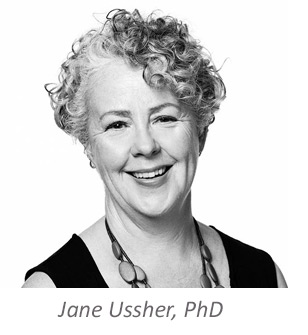 2019 Jane Ussher, PhD, of the University of Western Sydney, Australia, is the winner of MASCC’s 2019 Steven M. Grunberg Memorial Award for her research titled “Sexual Issues in Partners of Cancer Patients.” The Steven M. Grunberg Memorial Award is reserved for the author of the highest-ranking abstract submitted to the Annual Meeting and rewards demonstrated excellence in supportive care in cancer. At this year’s Annual Meeting, Jane presented her study of sexual embodiment and subjectivity after cancer across a range of cancer types and stages in partners of people with cancer, across both heterosexual and LGBT relationships.
2019 Jane Ussher, PhD, of the University of Western Sydney, Australia, is the winner of MASCC’s 2019 Steven M. Grunberg Memorial Award for her research titled “Sexual Issues in Partners of Cancer Patients.” The Steven M. Grunberg Memorial Award is reserved for the author of the highest-ranking abstract submitted to the Annual Meeting and rewards demonstrated excellence in supportive care in cancer. At this year’s Annual Meeting, Jane presented her study of sexual embodiment and subjectivity after cancer across a range of cancer types and stages in partners of people with cancer, across both heterosexual and LGBT relationships.
Research has increasingly recognized the profound impact that cancer can have on embodied subjectivity (one’s relationship to and acceptance of the body) and gender identity. Even so, the experiences of cancer survivors’ partners and those of lesbian, gay, bisexual and transgender (LGTBT) cancer survivors have received little attention. Jane presented a study of sexual embodiment and subjectivity after cancer across a range of cancer types and stages in partners of people with cancer, across both heterosexual and LGBT relationships. Surveys and interviews involved 47 partners of gay, bisexual, and lesbian cancer survivors, and 53 heterosexual partners.
Across gender and sexual identities, participants evidenced one of three orientations:
- “Dys-embodied sexual subjectivity,” characterized by bodily betrayal, sexual loss, lack of acceptance, and gender identity challenges;
- “Re-embodied sexual subjectivity,” characterized by greater sexual confidence, acceptance, the exploration of noncoital sexual practices, and increased relational closeness;
- “Oscillating sexual subjectivity,” characterized by a shifting between the other two states.
Gay and bisexual men were more likely than lesbian, bisexual, and heterosexual women to report disembodied sexual subjectivity, and their reports were associated with psychological distress and disruption of intimate relationships. But sexual renegotiation was higher in LGB relationships. Dissatisfaction with communication with healthcare professionals was more common in gay/bisexual and lesbian participants. The findings underscore the importance of an intersectional framework in understanding sexual subjectivity of partners and cancer survivors.
A clinical psychologist by training, Jane Ussher is Professor of Women's Health Psychology at the University of Western Sydney, Australia. Awarded a personal chair in Women's Health Psychology in 2002, Jane has conducted research on gendered health since starting her PhD in 1983, including gendered factors underlying mental health problems, subjectivity and identity in relation to the reproductive body and sexuality, and gendered issues in cancer and cancer care. She has also pioneered interventions in the areas of cancer and sexuality, and cancer and fertility. Jane has published over 220 peer-reviewed journal articles, chapters, and reports, and presented over 150 conference papers, often as an invited or keynote speaker. She is editor of the Routledge Women and Psychology book series and author or editor of numerous books on the psychology of the female body, myths and misogyny associated with women’s mental illness, contradictory cultural images of sex and femininity, gender issues in clinical psychology, and women’s health and health care, among many others. She is President of the Australian Society for Psychosocial Obstetrics and Gynecology (2017-2019), President of the Society for Menstrual Cycle Research (2017-2019), a Fellow of the British Psychological Society, and elected member of the International Academy of Sex Research. Jane is also on the editorial boards of several journals, including Counselling Psychology Quarterly, Psychology Health and Medicine, Psychology Review, Psychology Evolution and Gender, British Journal of Clinical Psychology, Social Theory and Health, Psychology and Sexuality, and Contemporary Social Science. She is the recipient of numerous research grants. Among several other current research projects are sexuality and fertility in the context of cancer and LGBT experiences of cancer.
Regarding the Grunberg Award, Jane writes: “It is a great honor to receive this award and have the opportunity to present my research to colleagues working in supportive cancer care. The psychosocial needs and concerns of cancer survivors are now widely recognized within psycho-oncology — but it is also important to acknowledge the needs of partners and other carers across the spectrum of gender and sexual identities. I am delighted that MASCC has recognized this work through the Steven M Grunberg Memorial Award.”


